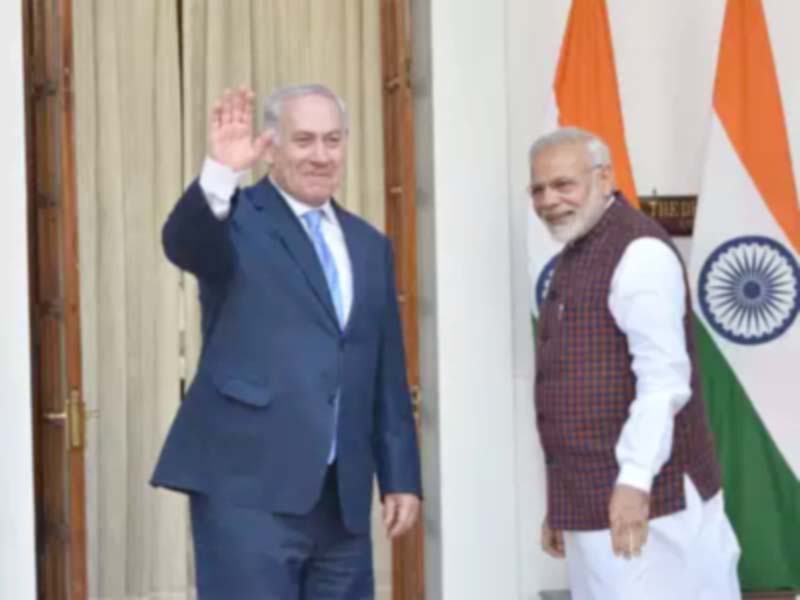Israeli PM Benjamin Netanyahu’s tweet thanking his Indian counterpart Narendra Modi for India’s vote in favour of Tel Aviv at the UN Economic and Social Council (ECOSOC) against the grant of consultative status to a Palestinian NGO has brought the India-Israel ‘love affair’ out in the open with a first-ever pro-Israel vote by India at the UN. So, how did the two Asian nations get so close?
Outright hate
For two countries that came into being in the same year 1947, though Israel formally became free in 1948 and from the same colonial master, the British, India’s relations with the newly created nation bordered on outright hostility, with New Delhi voting against the creation of the State of Israel at the UN in 1947 and also against its admission to the UN in 1949.
Grudging acceptance
In 1950, India recognised Israel as a separate country, allowing it to appoint an honorary consul in Mumbai a local Jewish resident in 1951. That was upgraded to a consulate in 1953, leading to a slow uptick in bilateral ties most notably in 1956 when the Israeli foreign minister Moshe Sharett visited India in the backdrop of the Suez crisis (Egypt had nationalised the Suez Canal, leading to war between Israel and Egypt).
Secret (b) romance
The 1962 India-China war was the first time that India reached out to Israel for help with arms and ammunition, with then Indian PM Jawaharlal Nehruwriting to his Israeli counterpart Ben Gurion, who responded by sending ships loaded with weapons. Even as the two nations publicly maintained distance thanks to Tel Aviv’s pro-Washington stance and India’s founding of the Non-Aligned Movement (NAM) in 1961, which was a de facto pro-Soviet forum Israel responded to India’s call for help in the 1971 war with Pakistan and the 1999 Kargil war. Today, India is Israel’s largest weapons buyer while Israel is the second largest weapons supplier for India, after Russia. Not just weapons, India’s spy agency RAW, established in 1968 during Indira Gandhi’s tenure as PM, actively collaborated with Mossad, the Israeli spy agency.
The thaw
It was in 1992, with P V Narasimha Rao as PM that India finally established diplomatic relations with Israel with several factors contributing to the decision. Chief among them were the crumbling of the Soviet Union and the start of the Israeli-Palestinian peace process in 1991, involving not just Tel Aviv and the PLO, led by Yasser Arafat, but also Arab countries like Syria, Jordan and Lebanon both of which gave New Delhi the necessary leeway to correct its pro-Soviet and pro-Arab tilt in its global diplomacy. India’s public stance against Israel was seemingly an economic and political necessity to keep the oil-rich West Asian nations and certain domestic political constituents happy with Arafat reportedly ready to help Indira Gandhi rally Muslim votes in India in her favour.
Open season
The first inkling that the tide had turned in Israel’s favour came in 2015 when India abstained from voting against Israel at the UN Human Rights Commission. That was followed by the first ever visit of an Indian PM to Israel when Modi paid a three-day visit in 2017 even though it did vote against the move by US to recognise Jerusalem as Israel’s capital. Who says appearances can’t be deceptive!


